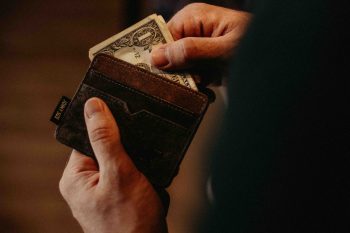 A person may decide to file for bankruptcy for various reasons, such as overwhelming debt, as a way to restructure a business, or because of unemployment. Federal bankruptcy laws provide different options for debt discharge depending on the goal of the person filing. In return, the law requires the person to provide accurate information on all aspects of the filing, especially assets and income, or be subject to criminal charges for bankruptcy fraud.
A person may decide to file for bankruptcy for various reasons, such as overwhelming debt, as a way to restructure a business, or because of unemployment. Federal bankruptcy laws provide different options for debt discharge depending on the goal of the person filing. In return, the law requires the person to provide accurate information on all aspects of the filing, especially assets and income, or be subject to criminal charges for bankruptcy fraud.
Bankruptcy fraud occurs in several different ways. A person may commit bankruptcy fraud by: intentionally lying on the forms required as part of the bankruptcy filing; hiding assets to avoid losing them in the bankruptcy; attempting to bribe the trustee appointed to handle the bankruptcy; or by filing multiple bankruptcy petitions in various jurisdictions using false information. Of these, the hiding of assets is the most common form of bankruptcy fraud.
Since bankruptcy law is federal, a person who commits bankruptcy fraud is charged under federal law. A person who commits more than one form of bankruptcy fraud can also be charged multiple times and faces a prison sentence on each charge of up to five years in prison. Additionally, the person may be required to pay fines and fees associated with the prosecution.
There are also potential civil repercussions for committing bankruptcy fraud. The court may refuse to grant a discharge of the debt that caused the person to file for bankruptcy in the first place. When this happens, the creditors can sue to recover the money owed or move for foreclosure and repossession of assets. In addition, the appointed bankruptcy trustee can ask for civil fines to be levied. These kinds of actions can have longer term impact; for example, if a creditor gets a judgement against a person, the creditor can seek to have the person’s wages garnished in order to collect on the judgment. This would make it difficult to get a fresh start, especially after serving a prison term for a fraud conviction.
Some people who may fail to list assets because they are afraid to lose them in the bankruptcy should not take the risk of being charged with a federal offense. A person who is filing for personal bankruptcy should always remember that there are some types of property that he or she will be allowed to keep even after that bankruptcy. There are also ways to affirm debt obligations for a mortgage or a car and keep making payments after other debts have been discharged. Before filing any petitions or forms to initiate a bankruptcy proceeding, it is important to speak with a bankruptcy attorney.
Contact Us for More Information
If you are experiencing financial troubles and considering filing for bankruptcy, you need to speak with an experienced bankruptcy attorney. Our experienced attorneys can discuss the legal issues that will arise in a bankruptcy, and how they will affect you. We can also help you consider other options that may help you avoid bankruptcy. For more information, call us at Resnick Law, P.C., in Bloomfield Hills and Detroit, Michigan.
(image courtesy of Allef Vinicius)



